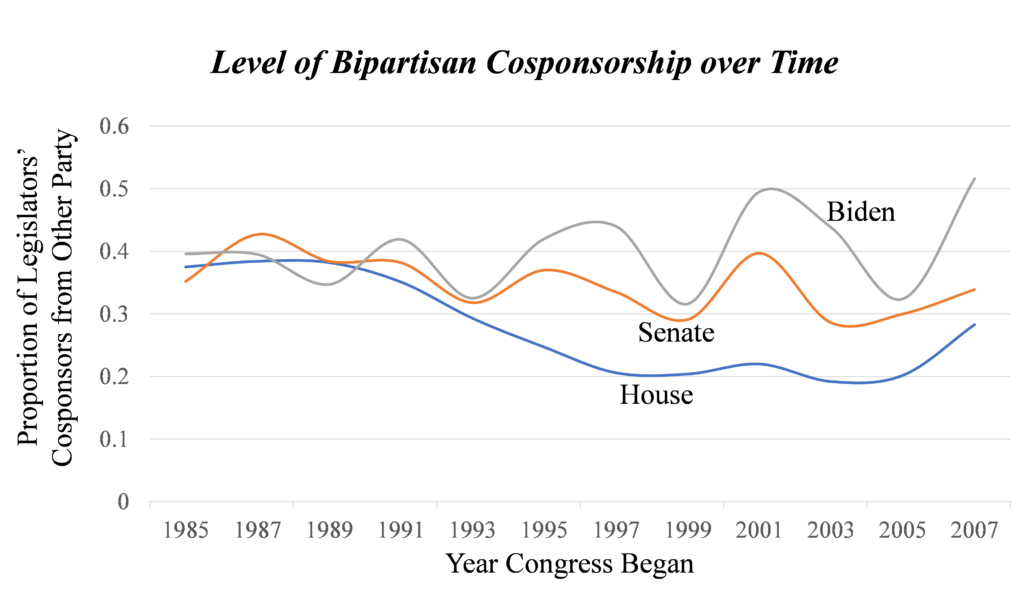Divided America, Divided Government: What’s Next?
America remains deeply divided. Closely contested races. A slight rightward move in the House. A slight leftward move in the Senate. If current election trends continue, 2021 will feature President Biden overseeing a Democratic House and Republican Senate.
In some ways continued divided government is fitting. Politicians should be placed in a position where they need to compromise and take one another’s views into account. But will they? Or will they dig in on their partisan divisions, which will contribute to gridlock, and ultimately provide the president with incentives to act unilaterally?
At an individual level, lawmakers are presented with mixed signals. On the one hand, our research shows that bipartisan lawmakers are more effective. Their work building cross-party coalitions pays off in their bills being more likely to become law.
On the other hand, those who compromise too much may face tough primary battles. And party leaders often prefer to keep policy issues unresolved for electoral purposes, rather than working with the other party to formulate solutions.
With divided government the likely outcome once again, why should we expect the results to be any different from what we’ve seen recently? One glimmer of hope might be gleaned from considering Joe Biden’s own legislative record when he was in the U.S. Senate.

This figure shows the fraction of cross-party cosponsors for bills that are proposed by the average member of Congress. In the 1980s, before the dramatic rise in partisan polarization, about 40% of cosponsors on any given bill came from the other party. As polarization rose, however, this percent dropped to about 30% in the Senate and 20% in the House. (The higher level of bipartisanship in the Senate seems entirely reasonable, given the need to overcome filibusters.)
But for Senator Biden, bipartisanship on his sponsored bills remained high, above both House and Senate averages. This suggests that he consistently made an effort to reach out to members of the opposing party as he sought to advance his legislative agenda.
If Biden does, indeed, prevail, only time will tell whether the newly elected president can bring Democrats and Republicans together in the current political environment. But the data suggest that he certainly tried to do so on his proposals when he served in the Senate.
For more on what’s next for congressional lawmaking, please join us for the following events:
Monday, Nov. 9, noon discussion with Time’s Molly Ball, author of New York Times best-seller Pelosi.
Thursday, Nov. 12, 11:00 a.m. discussion with Rep. Derek Kilmer, co-chair of the House Select Committee on the Modernization of Congress.



